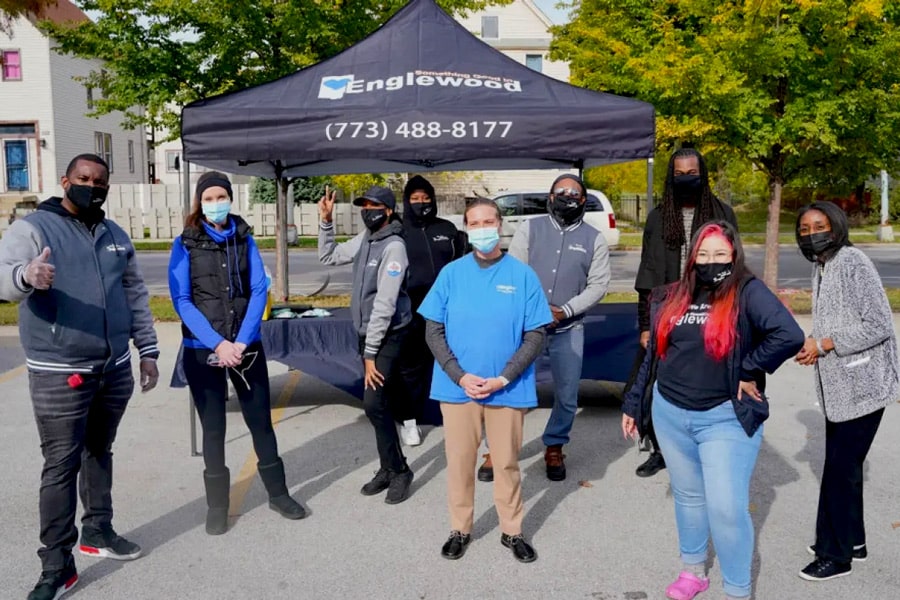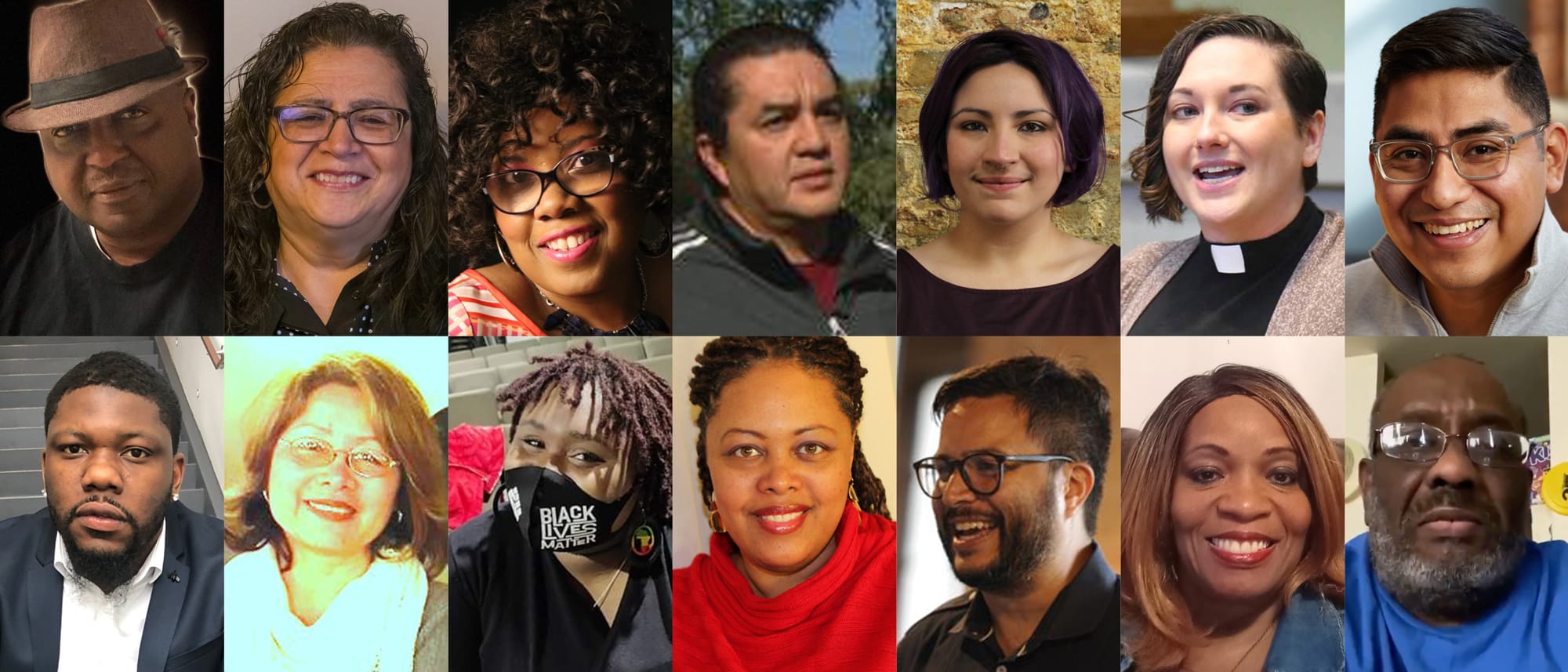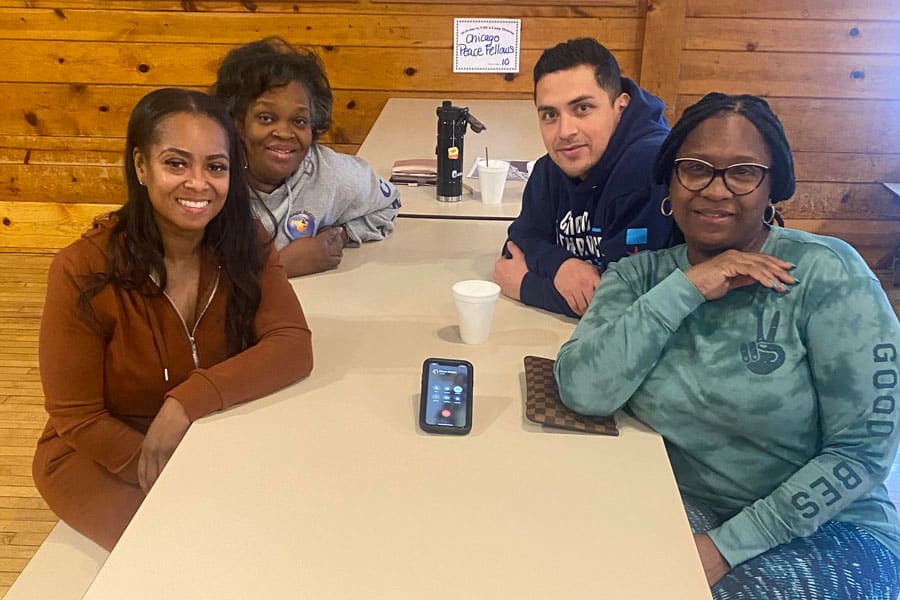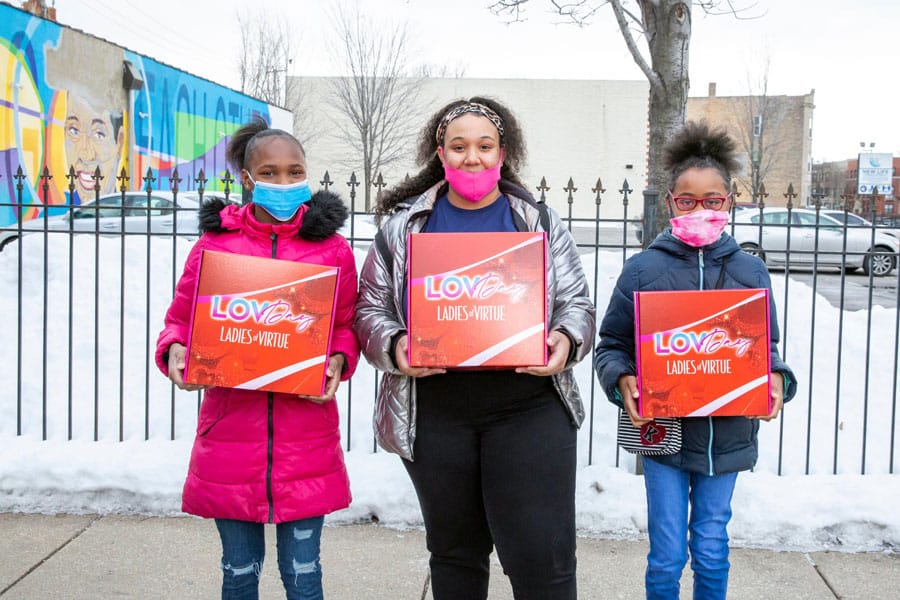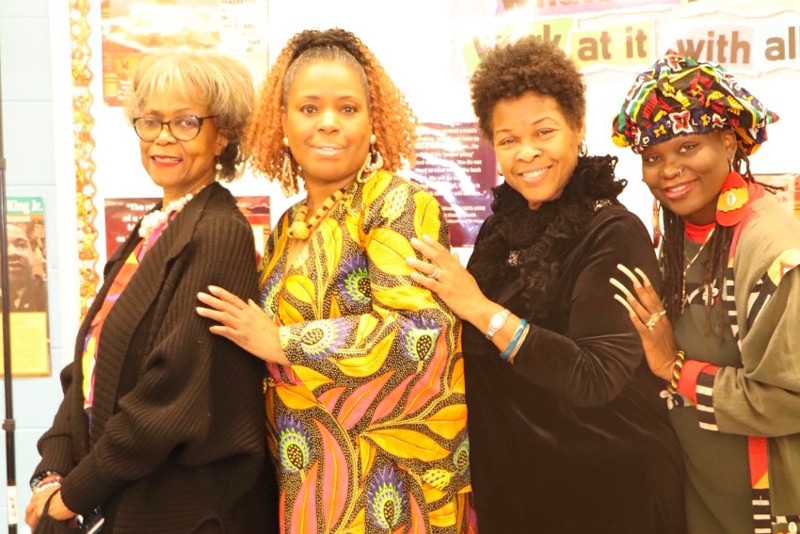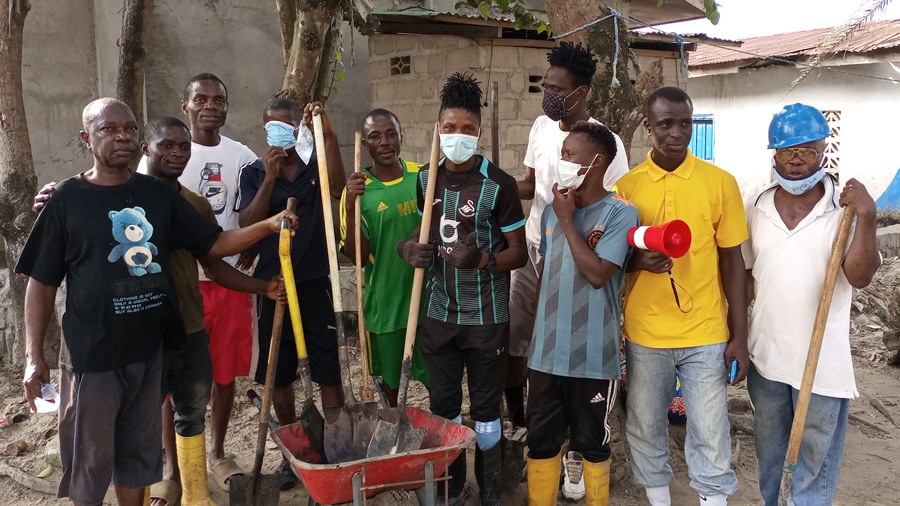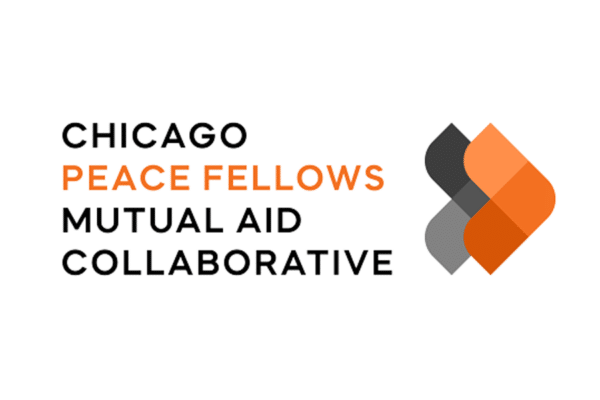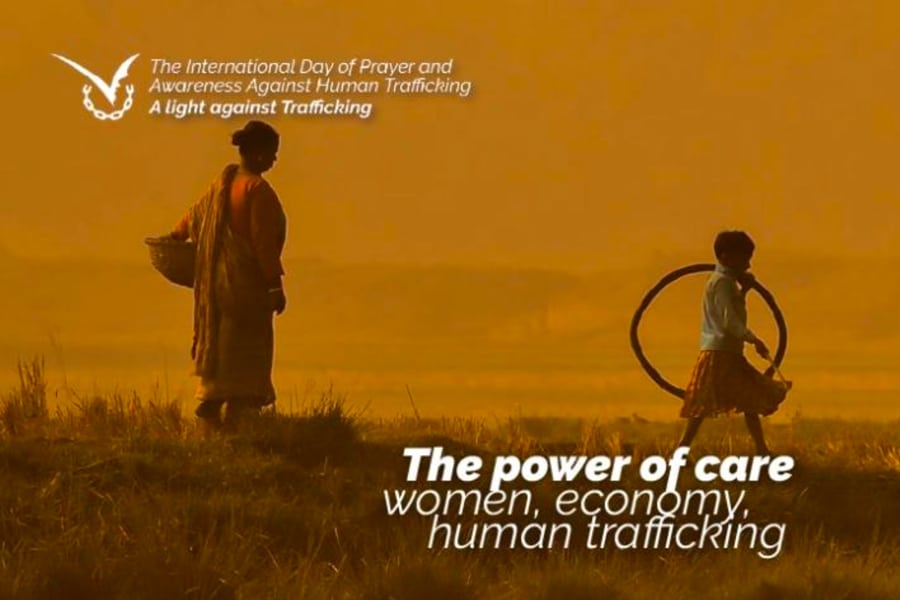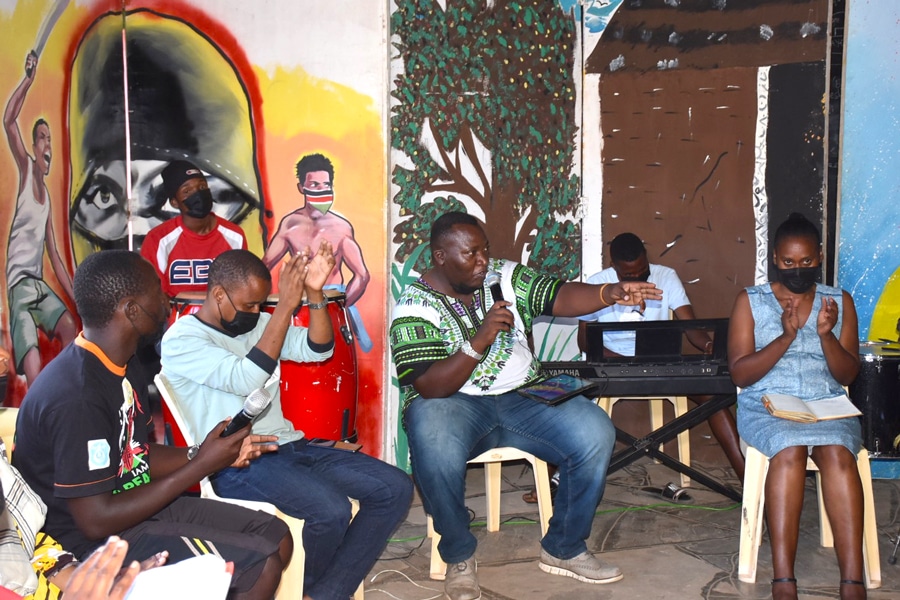Meet the 2022 Goldin Global Fellows (English Language Cohort)
The Goldin Institute invites you to learn about each of our 2022 Goldin Global Fellows coming from across the globe, from Albania to Zimbabwe. This diverse group of fellows will learn and work together as a Community of Practice, building on the talents of their neighbors and the assets of their communities to make real and lasting change around the world.

ABOUT GATHER
Peace Fellows participate in GATHER, an online asset-based community engagement course, as well as in-person training, collaborative action projects, and networking experiences with civic leaders, academic researchers, and policy makers. The Chicago Peace Fellows reduce violence by building relationships, engaging youth, collaborative peace building projects over the summer and by creating new networks among residents, families, schools, and nonprofit organizations.
The Fellows are learning together through GATHER, which is both a mobile platform for shared learning and a curriculum for people who want to build on the talents of their neighbors and the assets of their communities to make real and lasting change. Gather Fellows learn and work together through an innovative curriculum that comes pre-loaded on a tablet device with all the connectivity, materials, videos, practices and tools necessary to provide a mobile classroom and toolkit for community leadership.
The Goldin Global Fellows connects and equips grassroots leaders across the world to lead community driven social change. The 2022 Goldin Global Fellows is the third international cohort to utilize the GATHER platform, an online learning hub built by the Goldin Institute to empower grassroots leaders. They will engage in a 22-week course of intensive shared learning as well as group projects, culminating in a graduation event in November 2022. The curriculum has been designed and refined in collaboration with the Fellows themselves, based on their practical knowledge and hard earned wisdom, with input from a wide range of civic leaders.
To follow along the learning journey with the Goldin Global Fellows, please sign up for our newsletter and follow up on Twitter, Facebook and Instagram.
Building Safer Communities with the Chicagoland Vaccine Partnership
By Zeki Salah, Mutual Aid Collaborative Facilitator
Goldin Institute Peace Fellow, Annette Kelly, is helping host a series of workshops on Violence Prevention through her work with the Chicagoland Vaccine Partnership (CVP). Annette is the founder of FOUS Youth Development Services and was connected to the CVP through a funder of her organization. The CVP work focuses on sharing quality information about COVID vaccination in the communities hardest hit by COVID by mobilizing community leaders, educating community members and elevating multi-sector collaborations.

The CVP launched a learning community platform called the Learning Community in June 2021 that offered a unique virtual space for over 600 contact tracers, resource navigators, and concerned community members. In this space, community members could support each other in doing outreach about the COVID-19 vaccines and having open dialogue about health inequities and community organizing more broadly. This work was expanded by the CVP with the founding of the Learning Community Fellows, 11 members of the Learning Community that were hired to expand the outreach of the Learning Community and assist in curriculum development. Annette was selected as a Learning Community Fellow in October of 2021.

Prior to becoming a Learning Community Fellow, Annette had 15 years of experience running school based mentoring and violence prevention programs in the West Pullman community through her work with FOUS Youth Development Services. Through her work with the CVP, Annette is expanding her organization’s community impact by addressing the public health concerns regarding both COVID-19 and violence and their disproportionate effects on communities of color.
The goal of CVP’s Violence Prevention series is to invite the CVP Learning Community participants to see gun violence through the public health lens. The series aims to protect and improve the health of people and their communities and shows how community partnerships can address these issues. Two events have already been held, focusing on multi-sector collaborations and crime reporting and data. In the first event, Vaughn Bryant and Jesus Salazar of Metropolitan Family Services shared a network of community organizations that practice trauma-informed care and restorative justice practices. In the second event, Kimberley Smith of the University of Chicago Crime Lab showed how data about gun violence could be used to redirect resources to target populations most affected by that violence. Both events drew strong responses from the participants and provided a space for community dialogue and opportunities for collaboration.
The CVP’s Violence Prevention series will include two more workshops on violence intervention strategies and the impact of block clubs. The first of these events, Giving Hope: Innovative Violence Intervention Strategies, will occur on May 4th. It will aim to address the collective trauma of the COVID-19 pandemic by linking communities to trauma-informed mental health resources. The second event, Word on the Block: A Conversation About the Impact of Block Clubs, will be held on May 11th. This event will bring in people working with local Chicagoland Block Clubs to learn from them and provide space for community dialogue. Both events will continue the Violence Prevention series’ theme of illuminating how both violence and the COVID-19 pandemic affect public health on a broad and overarching level, while providing solutions that are community based and hyper-local.
Meet the 2022 Chicago Peace Fellows
The Goldin Institute invites you to learn about each of our 2022 Chicago Peace Fellows representing 14 community areas across the city. Founded in 2019 in collaboration with the Partnership for Safe and Peaceful Communities, the Chicago Peace Fellows program is the only leadership development program that is built by and for grassroots community leaders on the South and West sides of Chicago.

2022 Chicago Peace Fellows
ABOUT GATHER
Peace Fellows participate in GATHER, an online asset-based community engagement course, as well as in-person training, collaborative action projects, and networking experiences with civic leaders, academic researchers, and policy makers. The Chicago Peace Fellows reduce violence by building relationships, engaging youth, collaborative peace building projects over the summer and by creating new networks among residents, families, schools, and nonprofit organizations.
The Fellows are learning together through GATHER, which is both a mobile platform for shared learning and a curriculum for people who want to build on the talents of their neighbors and the assets of their communities to make real and lasting change. Gather Fellows learn and work together through an innovative curriculum that comes pre-loaded on a tablet device with all the connectivity, materials, videos, practices and tools necessary to provide a mobile classroom and toolkit for community leadership.
The Chicago Peace Fellows project connects and equips cohorts of past grantees of the Chicago Fund for Safe and Peaceful Communities to reduce violence and promote peace. The 2022 Chicago Peace Fellows is the foyrth all-Chicago cohort to utilize the GATHER platform, an online learning hub built by the Goldin Institute to empower grassroots leaders.
The participants have been selected from past grantees of the Chicago Fund. They will engage in a 22-week course of intensive shared learning as well as group projects, culminating in a graduation event in September 2022. The curriculum has been designed in collaboration with the grantees themselves, based on their practical knowledge and hard earned wisdom, with input from a wide range of civic leaders. Fellows will reflect on their past summer work, identify successes and lessons learned, and improve their abilities by sharing strengths and learning new skills.
The Goldin Institute and the Partnership for Safe and Peaceful Communities have aligned missions that value authentic community leadership. The Chicago Fund is uniquely effective at finding motivated problem-solvers and community-builders. By connecting Chicago leaders through GATHER, their efforts to nurture safer and more peaceful communities will be more effective, interconnected and lasting.
A special thanks to the Chicago Community Trust, the Conant Family Foundation, Crown Family Philanthropies, the Frankel Family Foundation, the Polk Bros. Foundation, the Racial Justice Pooled Fund, the Seabury Family Foundation, the Walder Family Foundation and the Partnership for Safe and Peaceful Communities for making this program possible.
To follow along the learning journey with the Chicago Peace Fellows, please sign up for our newsletter and follow up on Twitter, Facebook and Instagram.
If you would like to apply for the next cohort of Gather Fellows, please email gather@goldininstitute.org.
Deepening Our Bonds at the Peace Fellows Retreat
By Zeki Salah, Mutual Aid Collaborative Facilitator
Last summer, the 2021 Chicago Peace Fellows collaboratively designed and launched seven peace building projects geared towards serving and building community with people throughout the Chicagoland area. The Peace Fellows Retreat was one of those projects and was designed to give back to the Fellows in return for all their hard work serving their communities and to strengthen relationships between the Peace Fellows.

During one of the summer project meetings, Peace Fellow Bertha Purnell expressed the need for the 2021 Fellows to take a retreat out in the woods to relax for a bit:
Sometimes things are so fast paced I need Post-it reminders as well as a calendar. The retreat was a time to slow down, breathe deep, and smell and feel the air.
Another Peace Fellow, Andrea Reed, couldn’t have agreed more:
Although, I love the work that I do and the fulfillment it brings...I am also very mindful that I need to unplug to take care of myself so that I can continue to feed into others.
During the fall, Bertha and Andrea took the lead on organizing the Retreat. Collaborating with a group of Fellows, their first goal was to find a space. In years past, other Fellows cohorts held retreats at hotels in downtown Chicago, but Bertha liked the idea of having the Fellows in nature and outside of their typical environment.

Andrea recommended the YMCA Camp Duncan Site because she had the opportunity to attend a leadership retreat there when she was student at DeVry University:
It was such a beautiful, restful and peaceful place. I always wanted to go back there, but never did. When we were discussing the need for a retreat, the words that kept coming to the surface were rest, peace, serenity which triggered my memory of Camp Duncan.
The logistics of the Peace Fellows retreat were negotiated collaboratively. Andrea showed the team pictures of the campsite to convince them it was a good location. In early December, a survey went out to all the 2021 Chicago Peace Fellows and March 18-20th was selected as the date. After a joint discussion, Fellows decided that the Retreat should focus on providing rest and reflection. Andrea and Bertha planned out snacks, activities, and other necessary supplies before sending out another survey to see what activities Fellows were interested in doing. Responses to the survey helped the Peace Fellows Retreat group plan time to enjoy nature, rest, and reflect on their time as Fellows.

Getting into nature was restorative for the Peace Fellows and helped them relax, connect with one another, and imagine new ways of engaging their communities. Andrea reported “the full breadth of this place is breathtaking and could never compare to the glitz and glamor of a swanky hotel.”
As the Fellows breathed in the fresh air they could not stop imagining the benefits this site could bring for kids. The next plan for this group is to take a few students to the campsite before the school year so they can relax and reflect as well. Andrea suggested:
“When we look for ways to reach our youth, I believe that exposing them to Camp Duncan with youth advisors who have the skill and experience in reaching our youth would prove to be very beneficial and most transformative.”
LOV Day Hosted by Ladies of Virtue, Chicago
By Cree Noble, Team Coordinator
On Saturday, February 5th, and Saturday, February 12th, the Ladies of Virtue hosted their annual LOV Day Celebration as an expression of their mission “to instill purpose, passion, and perseverance in girls, ages 9 to 18, while preparing them for college, careers and to become change agents in their communities". Ladies of Virtue is a Chicago-based non-profit founded by Chicago Peace Fellow Jamila Trimuel in 2011 with the goal of becoming the premier mentoring and leadership training organization for Black girls in the world.

LOV matches their participants with mentors and prepare them for leadership through our culturally relevant character building, career readiness and civic engagement curriculum. The team at Ladies of Virtue provides project management, collaboration and communication training via their two to four-month project experiences to empower girls to lead in the modern workforce. After graduating from high school, with successful completion of LOV's leadership program, participants are mentored and supported for six additional years as LOV 4 Life alumni.

LOV Day was birthed because “many Black girls feel that their concerns go mostly unaddressed and overlooked. Research confirms what our girls have been telling us all along. Due to stereotypes, a 2017 Georgetown Law Study showed that adults believe black girls ages 5-19 need less nurturing, protection, support, and comfort than their peers of the same age".
"We know that this perception is not reality. We want Black girls and young women to know that they are seen, heard, and loved." - Jamila Trimuel, Chicago Peace Fellow

This unfortunate reality mixed with a couple of years into the pandemic, LOV Day was more important than ever before. Since Black girls are oftentimes seen as older and less nurtured than their peers, many Black girls experience higher rates of detention and suspension than most. With the pandemic, more Black girls are reporting they feel depressed and isolated. Founder of Ladies of Virtue, Jamila Trimuel, expressed the importance of “LOV Day is to show love to our Black girls!”

The love that the Ladies of Virtue showed to the girls for this LOV Day started on February 5th with a pamper party. At the pamper party, girls came together to play games, receive manicures, masks, and overall receive a self-care day to show their appreciation to the ladies. The second gift the Ladies of Virtue created for girls was 350 LOV boxes that they would pass out to girls across the South Side of the city.

These boxes included Black History Facts, teddy bears, hair care products, and PPE. This event was sponsored by the Goldin Institute - Mutual Aid Collaborative. In addition, product sponsors included: University of Chicago, Mielle Organics, Renee Ramore, Ferrara, and Ms. P’s Gluten Free!

Jamila loves the impact LOV Day has on girls who are not a part of the Ladies of Virtue mentorship program. One of the current mentees of the program found out about Ladies of Virtue when she received a LOV Day box last year. After receiving the box she wanted to join the program.

Ladies of Virtue is currently in the middle of programming for their mentees. Upcoming events are the College Expo which will take place on April 2nd, a community service event with mentees on April 16th, and their Juneteenth event. Ladies of Virtue is also accepting donations for upcoming graduates of 8th grade and 12th grade to help them be prepared for high school and college. Lastly, they are seeking mentors! For more information check out their website at https://www.lovchicago.org/ .
Principles of Kwanzaa Can Unite Us
By Cree Noble, Team Coordinator
Last December 2021 Chicago Peace Fellow Pastor Victoria Brady and members of Big Mama Movement Chicago (a coalition which she co-founded) hosted The Black Family Reunion on the last 3 days of Kwanzaa. Big Mama Movement Chicago is a group of Black women who are calling for the unification of the Black Family. Pastor Victoria conceived the idea of hosting a global Black Family Reunion and thought, what better time to call for unity than during Kwanzaa.

Pastor Victoria (nicknamed Pastor V.) and six other Big Mamas embarked in the planning of the celebration, realizing that the principles of Kwanzaa can be used as a powerful instrument to bring Africans and the African Diaspora together. Also realizing that people right here in the United States do not understand Kwanzaa, Pastor V. states:
"There are so many misconceptions about Kwanzaa including that it is designed to replace Christmas. This is not true. Kwanzaa is a week-long celebration of the best of Blackness; it is a cultural celebration that uplifts families and the community.” - Pastor Victoria Brady
Pastor V. is continuing the work of creating safe spaces for civic and community engagement, making peace, and bringing a greater degree of peace and unity within the Black community. With the goal of building unity in mind, she plans to conduct a series of highly engaging and innovative teach-ins/workshops to share the importance of the Nguzo Saba which are the pillars upon which the principles of Kwanzaa are built. She is preparing to share this information with leaders in the U.S.A. and in different parts of Africa who can, then share the information within their communities. Pastor Victoria’s efforts are expanding to include Peace Fellows in Chicago and across the globe. The Nguzo Saba, which are shared here, has the potential to spark lasting changes in the way that Africans and the Diaspora view itself and our sometimes fragmented relationships stemming from chatel slavery where families and communities were ripped apart.

According to the National Museum of African American History and Culture, Kwanzaa is a time of learning, family, and celebration...families and communities come together to share a feast, to honor the ancestors, affirm the bonds between them, and to celebrate African and African American culture. Each day they light a candle to highlight the principle of that day and to breathe meaning into the principles with various activities, such as reciting the sayings or writings of great Black thinkers and writers, reciting original poetry, African drumming, and sharing a meal of African Diaspora-inspired foods.

The table is decorated with the essential symbols of Kwanzaa, such as the Kinara (Candle Holder), Mkeka (Mat), Muhindi (corn to represent the children), Mazao (fruit to represent the harvest), and Zawadi (gifts). One might also see the colors of the Pan-African flag, red (the struggle), black (the people), and green (the future), represented throughout the physical space and in the clothing worn by participants. These colors were first proclaimed to be the colors for all people of the African Diaspora by The Honorable Marcus Garvey. The seven principles of Kwanzaa to be put into daily practice are listed here:

“The teach-ins are designed to bring a greater awareness of Kwanzaa, demystify it, and to seek ways to improve the quality of life by incorporating the seven principles into the lives of Africans and her Diaspora rooted in Umoja (Unity) and Imani (Faith)” says Pastor V.
More information go to: https://nmaahc.si.edu/explore/stories/seven-principles-kwanzaa
Mobilizing a Community Clean Up in Liberia
By John Kamma, Global Fellow from Liberia
Whatever social innovation we are concerned with, our impact on the lives of the people we serve or work with matters. Implementing their good ideas is important to achieving our collective goal. And, this was the case with our intervention in the Glass Factory Community in Gardnersville, Liberia.

Glass Factory was an industrial zone before the Liberian civil war began in December 1989. Internally displaced persons and returnee refugees took advantage in the absence of the industry owners and settled there in droves, and after seeking Government permission were permitted to settle in the area as squatters. Resultantly, no one owns a land deed; instead the local authority apportioned the land temporarily amongst persons seeking occupation of it. Given this situation, more people got attracted to the land (as it is cheaper than living on a titled land deed) which has led to it becoming densely populated. This has put much pressure over the limited land space, and led to inappropriate management and disposal of waste into drainages, resulting in excessive pollution and health hazards.

With the funding received from the Collective Campaign, and to address these issues of pollution and its implication on the community’s health, on February 19 2022 we had a day of community cleaning, focusing on drainages in “Glass Factory”, with strong displays of support from the community. During the clean-up exercise, we spoke to the conscience of community residents, using a megaphone, about the health benefits of keeping the drainages clean and the importance of protecting them from getting clogged up, and how essential that is for the wellbeing of all residents.

The community appreciates our organization, the Citizens Bureau for Development and Productivity in Liberia, and our supporters for working with the community in such a meaningful and impactful way, that is heart touching. Community leaders and elders were so encouraged that they formed part of the cleanup team; choosing to be with the cleanup team in their neighborhood rather than doing nothing, they joined voluntarily. We are delighted the day’s clean-up went very well.

This endeavour implemented real community driven social change by using the Asset Based Community Development (ABCD) approach, which builds on local talents and skills, and recognizes that those experiencing a social problem are those who need tobe involved in the decision-making processes when devising solutions. In Glass Factory, following such conversations the community member identified that throwing plastic bags and waste in drainages creates clogging which results in increased pollution and mosquitoes, with the likelihood of people getting sick. In relation to the above, residents of Glass Factory community held a conversation to find a way forward in handling these social challenges and to attend to the community drainages. They were successfully able to maximize tools, including wheel-barrow, shovels, ricks, booths, etc for an effective clean up exercise.
The volunteers committed to turning up with their own tools and equipment, and gathered for a team meeting in which they discussed actions to be taken, to effectively work on community drainages that will promote residents' health, sanitation and wellbeing. We, at the Citizens Bureau for Development and Productivity with the kind and good will gesture of our generous donors through the 2021 Goldin Global Fellow Collective Fund are addressing the social challenges posed with clog drainages by working with those close to the problem, supporting their aspirations to realize the community driven social change they so desire.

We are very grateful to #GATHER and the #GoldinInstitute for helping us 2021 Goldin Global Fellows to have acquired the skills and the resources to lead community driven social change. It is truly exciting to see this learning into practice.
Illuminating the Pathway to Racial Justice in Philanthropy
The Chicago Peace Fellows Mutual Aid Collaborative held a press conference on the anniversary of the assassination of Malcolm X to amplify the themes of their open letter, A Pathway to Anti-Racist Philanthropy. The Mutual Aid Collaborative members are all Alumni of the Chicago Peace Fellows program -- now 60 members strong across the South and West Sides -- who joined forces through the Collaborative as an ongoing platform for shared learning and collaboration.
During this interactive press conference, Collective members La'Keisha Gray-Sewell, David Gonzalez, Cosette Nazon-Wilburn, Victoria Brady, Gloria Smith and Annamaria Leon shared the core elements of the Funders Pledge, outlining critical steps that philanthropic leaders can take immediately to promote racial justice in funding.
Chicago Peace Fellows Mutual Aid Collaborative was born in 2020 to address the enduring legacy of racial injustice that has been laid bare by the disproportionate impact of the twin pandemics of violence and COVID-19 on our communities on the South and West sides of Chicago.
During the press conference, Fellows shared insights into how their Mutual Aid Collaborative can be an illustrative model for philanthropy to consider on their path to racial justice in funding. In particilar, the Collaborative uses a "pooled fund" approach where those closest to the issues make collective decisions, share their gifts and assets, and take collective action on priorities that are set by the communities they serve.
This powerful call for Racial Justice was echoed in an article in the Chicago Sun Times entitled Chicago philanthropies urged to sign pledge to ‘rectify racial inequity’ in their giving, featured in a news report on WBBM NewsRadio, and published as an op-ed in Crain's Chicago Business.
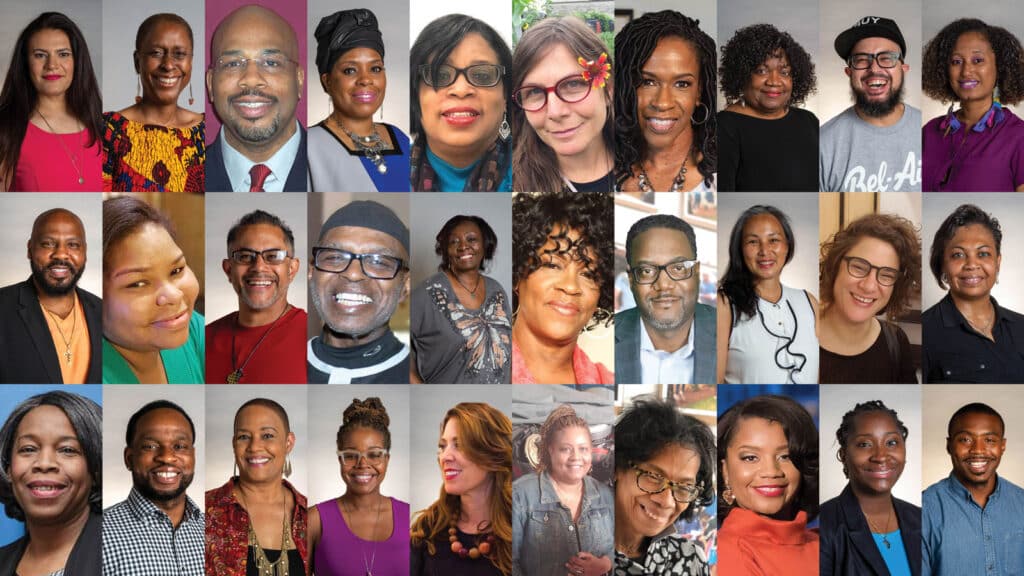
All Foundations, corporations, donors or aligned organizations that are willing to pledge to stand up for racial equity are invited to connect by completing this short form:
CONNECT WITH US
If you have questions or suggestions, please connect with us at funderspledge@goldininstitute.org or at (312) 951-1691.
Preventing Human Trafficking in the Philippines
By Andy Alegre, Global Fellow from the Philippines
In the Philippines, we commemorated the International Day of Prayer and Awareness Against Human Trafficking through a nationwide campaign that included a series of actions. The Philippine Interfaith Movement Against Human Trafficking (PIMAHT) together with Talitha Kum Philippines (TKP) usually promote and observe this day on February 8th in the Philippines every year. This day is also known in the Catholic faith tradition as the Feast Day or Memorial of St. Josephine Bakhita, a victim and survivor of slavery, freed later on and found faith.
"No to trafficking! We promote an economy of care, which breaks down inequalities. We invite the global network to join us in raising awareness and taking action. Please raise your vioce and share on social media using the hashtag #PrayAgainstTrafficking and #thePowerOfCare." -- Andy Alegre
To commemorate this day, we held an online prayer session together with churches and various organizations using a special vigil of prayer prepared specifically for this year’s event. Together, we prayed for freedom, healing and restoration of human trafficking victims and survivors and the protection of advocates.

We also had an opportunity to participate in a global, live-streamed youtube conversation and dialogue about Human Dignity and Human Rights. In this virtual setting, we interacted with speakers and participants on key topics as they related to the issue of Human Trafficking. This online event series had also included creative ways such as a live global marathon of prayer and reflection against human trafficking. It was a great honor to be joined by the PIMAHT secretariat members and other organizations.
Between 8:30 pm and 9:30 pm Philippine Time, we also participated in the global storm of awareness messaging via Twitter! Using the hashtag #PrayAgainstTrafficking, we spent the full hour tweeting and re-tweeting messages to raise awareness and inspire actions from churches and faith communities. Below is one example of the tweets we shared:
"On Bakhita's Day, we participate in the global online prayer marathon against trafficking. The theme: “The power of care. Women, the economy, human trafficking."
I would always participate every year in this campaign through prayer, awareness, and prevention sessions against human trafficking either in churches or in vulnerable communities. I also utilize my social media in the Twitter storm which just started two years ago.

Hopefully that next year, PIMAHT can do another campaign that is wider in scope. I will share next year's plan with Goldin Fellows so that we can participate together.
*Andy Alegre also serves as a Secretariat member of PIMAHT, a national faith-based movement formed in 2013 that is composed of representatives from the 3 largest Christian church councils together with other partner organizations united in the fight against all forms of human trafficking.
Collective Campaign Supports Grassroots Leaders in 19 Countries
By Yusuph Masanja, Co-Facilitator, Global Alumni Network
In December 2021, a new cohort of 24 grassroots leaders graduated from an 18-week community based leadership course called GATHER. Designed and implemented by the Goldin Institute, the GATHER Platform engages people who want to build on the talents of their neighbors and the assets of their communities to make real and lasting changes.
To share their wisdom and what they learned from the program, Fellows created a joint fundraising campaign to raise money that will support their continued social change projects in their countries. The campaign successfully raised 12,000 USD through online and offline donations.
“One of the key aspects of the GATHER program is to develop a global community of practice where grassroots leaders partner to promote community driven social change. Seeing such a partnership already happening, as Fellows collaborated to make a strong fundraising campaign, was so heartening and uplifting” — Yusuph Masanja, Co-facilitator, Global Alumni Network
On behalf of all Fellows, we take this opportunity to thank everyone who donated to this collective campaign. Here are some updates from the Fellows on your contributions are supporting grassroots solutions to global challenges:










Alumni are also extending a special thank you to the Goldin Institute board for matching all the donations!
To continue supporting the work of Goldin Fellows across the word, please visit our donation page to learn more or get in touch with me at yusuph@goldininstitute.org.


